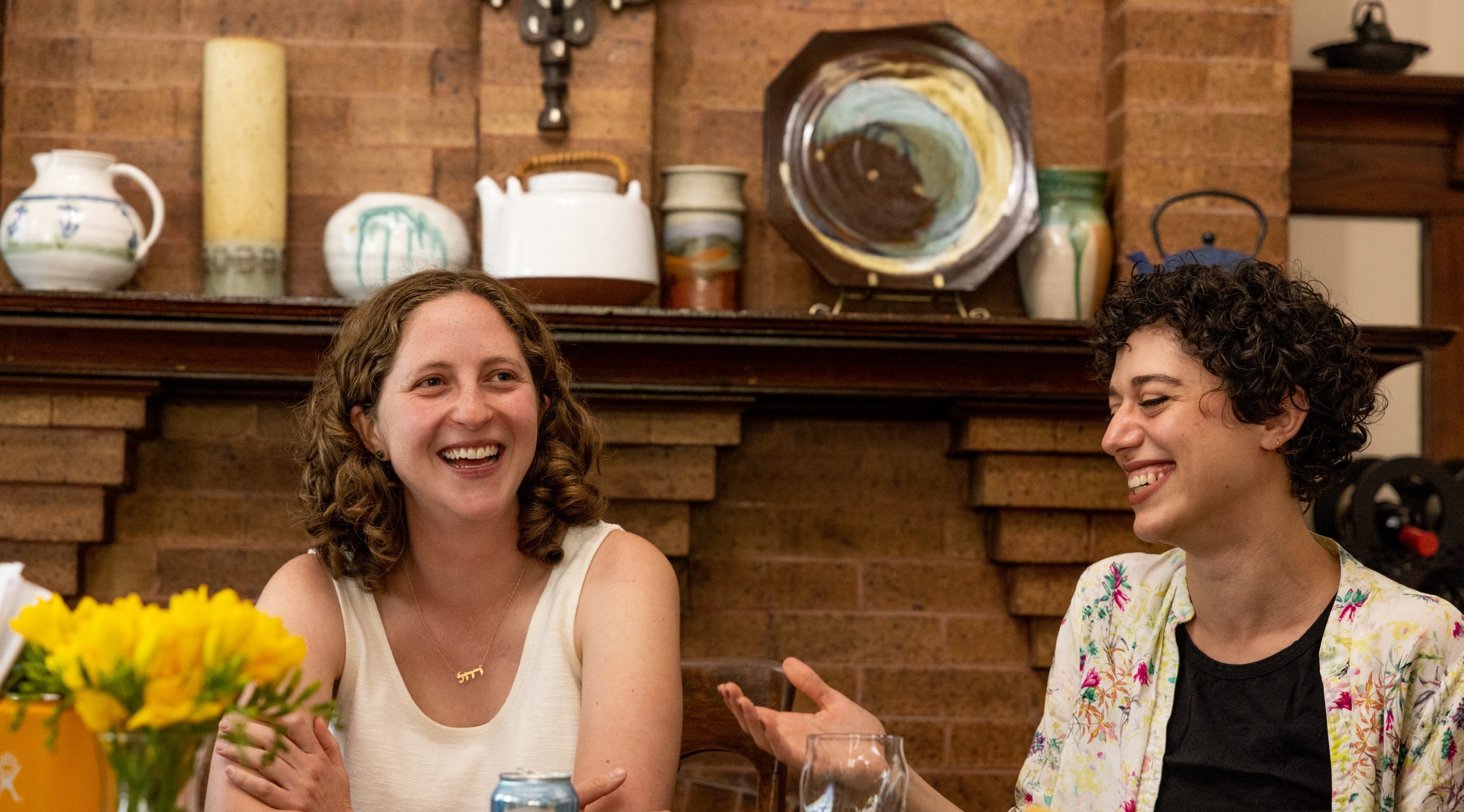
Nearly twenty years ago my family and I moved to Evanston, Illinois. I had just been ordained a month earlier, our son Micah had just been born two weeks prior, and we moved into an empty condo apartment two blocks from the Northwestern University Hillel, where I had taken a job as the campus rabbi. Natalie and I had rented apartments in New York up until then, and this was the first place we owned.
I remember that the confluence of all these changes made it feel different, like we had arrived at this new, officially more grown up stage of life. That was especially true on our first Shabbat. Up until then, we had always eaten on a small Ikea table and sat on folding chairs. But here was a big new walnut dining room table and eight chairs, one we had paid good money for and that would be with us for a long time (it still is). I remember feeling overwhelmed as I sat there and took it in. For the first time, I really felt like we were truly, deeply at home.
In our preparations for Passover (and, perhaps, our aversion to the less narrative-driven nature of Leviticus), we can miss the fact that Parashat Shemini marks the moment when the Divine and the Israelites are, for the first time, sitting at their dining room table together–truly, deeply at home. After weeks and weeks of reading about the construction of the Mishkan in the latter half of Exodus, and then more Torah portions devoted to instructions about the sacrifices at the beginning of Leviticus, the opening chapter of Shemini marks the moment when it all finally comes together. The Mishkan is set up, the priests are consecrated and purified, they perform the required offerings, Moses and Aaron bless the people, and finally the presence of God appears, “and all the people saw, and shouted joyously, and fell on their faces” (Lev. 9:24) God is at home in the world.
But, of course, that moment is fleeting. In the very next verse it all goes terribly, horribly wrong. Aaron’s older sons, Nadav and Avihu, offer a “strange fire” and are killed by a fire that flares forth from the Ineffable. What was a moment of deep, profound presence and at-homeness becomes a moment of absence and death.
The midrash offers many explanations as to what Nadav and Avihu did that brought about this moment of profound rupture. Many of them imagine that, unlike their father and uncle, they became arrogant: they thought themselves too good for any of the available spouses among the people; or, perhaps, they looked forward to the day when Moses and Aaron would die and they would be the leaders of the people; or, maybe, they tried to directly perceive the Divine presence in a way that even Moses did not (Vayikra Rabba 20:10).
On a more intimate level, what all of these attempted explanations share, perhaps, is a fundamental discomfort with, or inability to inhabit, the reality of the present moment–an inability to be at home driven by a desire for, perhaps, even more at-homeness. Where Moses and Aaron were humble, Nadav and Avihu were arrogant. Where Moses and Aaron recognized the limitations inherent in human life–even in a human life that’s at a stage of advanced spiritual development–Nadav and Avihu were unable to do so. They couldn’t accept that being truly, deeply at home is not about having it all, but about living within the realities and limitations of human existence. That’s one reading, anyway.
I think it’s an important reading, one which reflects a profound tension at the heart of Torah: How do we experience being truly, deeply at home? From the Garden of Eden to the exile of the Children of Israel in Egypt to the fact that Moses dies, and the Torah ends, before the people make it into the promised land, the Torah conveys a deep ambivalence about the idea of being at home. Even as he imagines the people finally making it across the Jordan River, Moses reminds them not to get too comfortable and forget how they got there (Deut. 6:10-12). We are meant, it seems, to hold our at-homeness lightly.
Or, perhaps, to recognize that deep at-homeness–what I believe is our human spiritual capacity–lies as much in our ability to inhabit whatever moment and reality we are in fully and mindfully as it does in the particular places we might think of as home. That kind of balance, a holding or apprehending of reality that is neither too firm nor too weak but just right, is what we seek to cultivate through our practices. While our innate emotional drives seek to preserve home as we know it at all costs, our practices can help us create some reflective distance from those drives so that we can respond mindfully, wisely, and ethically–and so that the Divine can be made manifest, at home in the world.
Josh’s Friday Reflections
FREE
Every Friday morning, IJS President & CEO Rabbi Josh Feigelson shares a short reflection on the week in preparation for Shabbat. Josh weaves together personal experience, mindfulness practice, and teachings from the weekly Torah portion in a uniquely accessible and powerful way. Sign up to receive Josh’s weekly reflections here.

